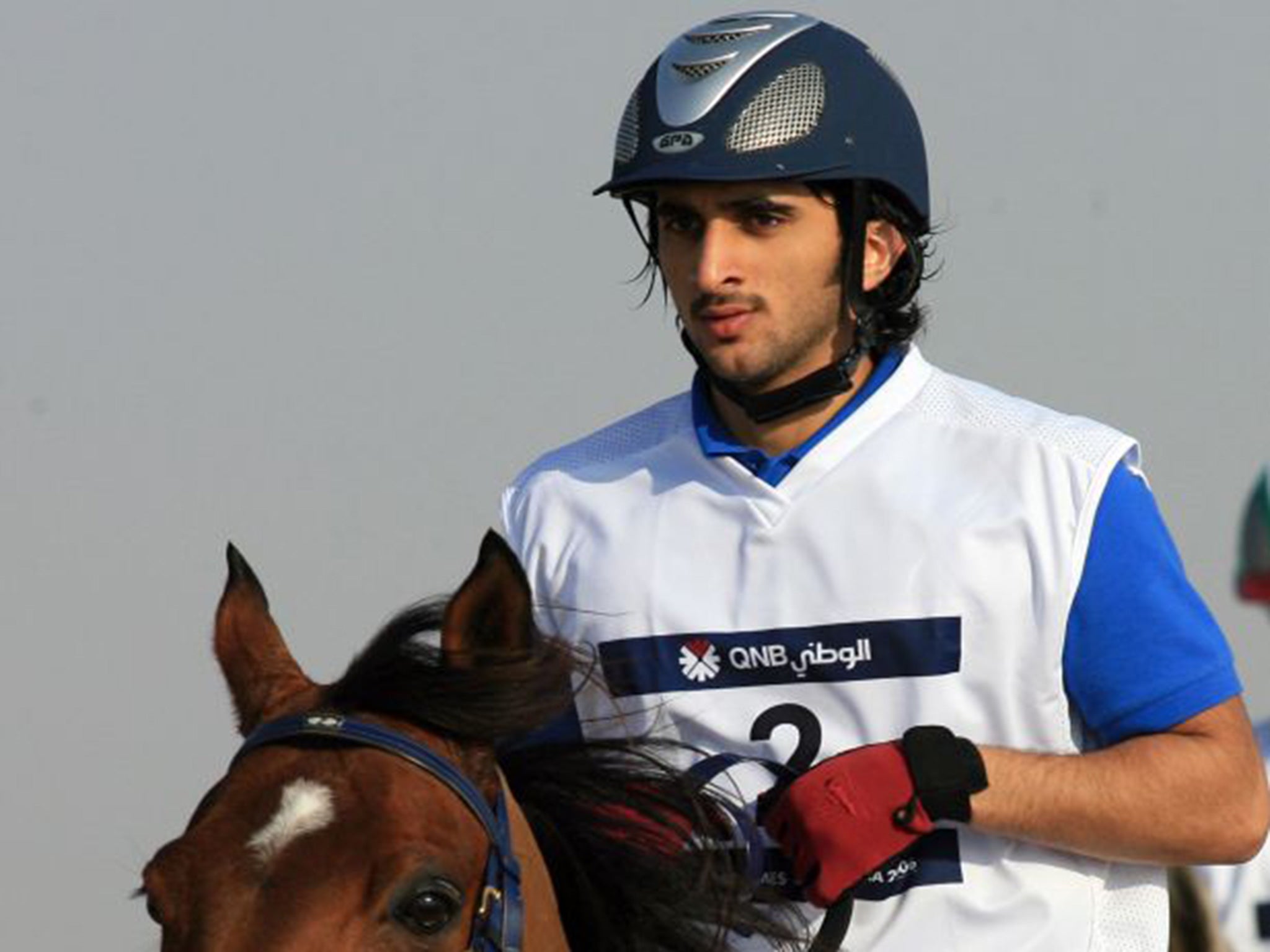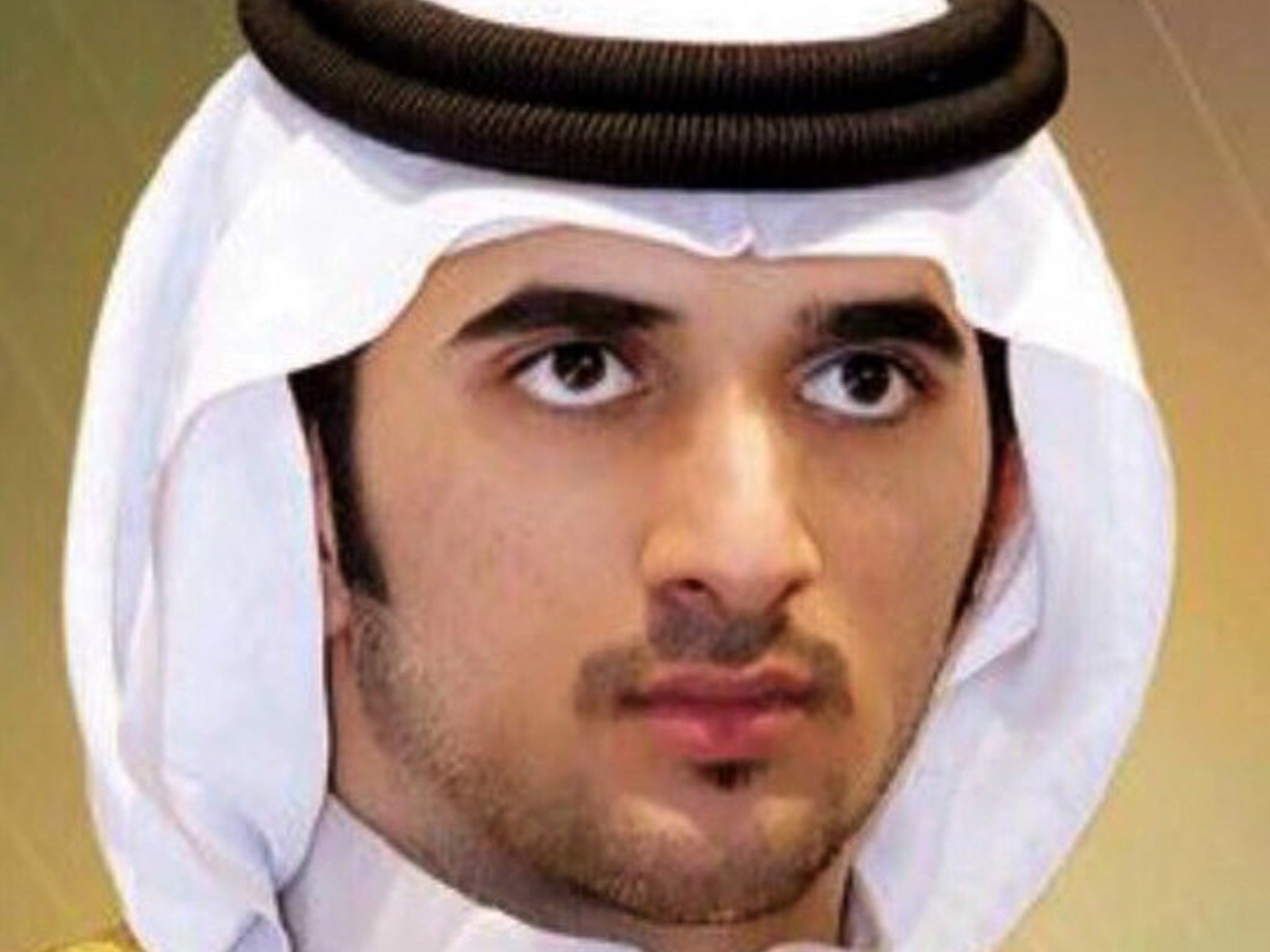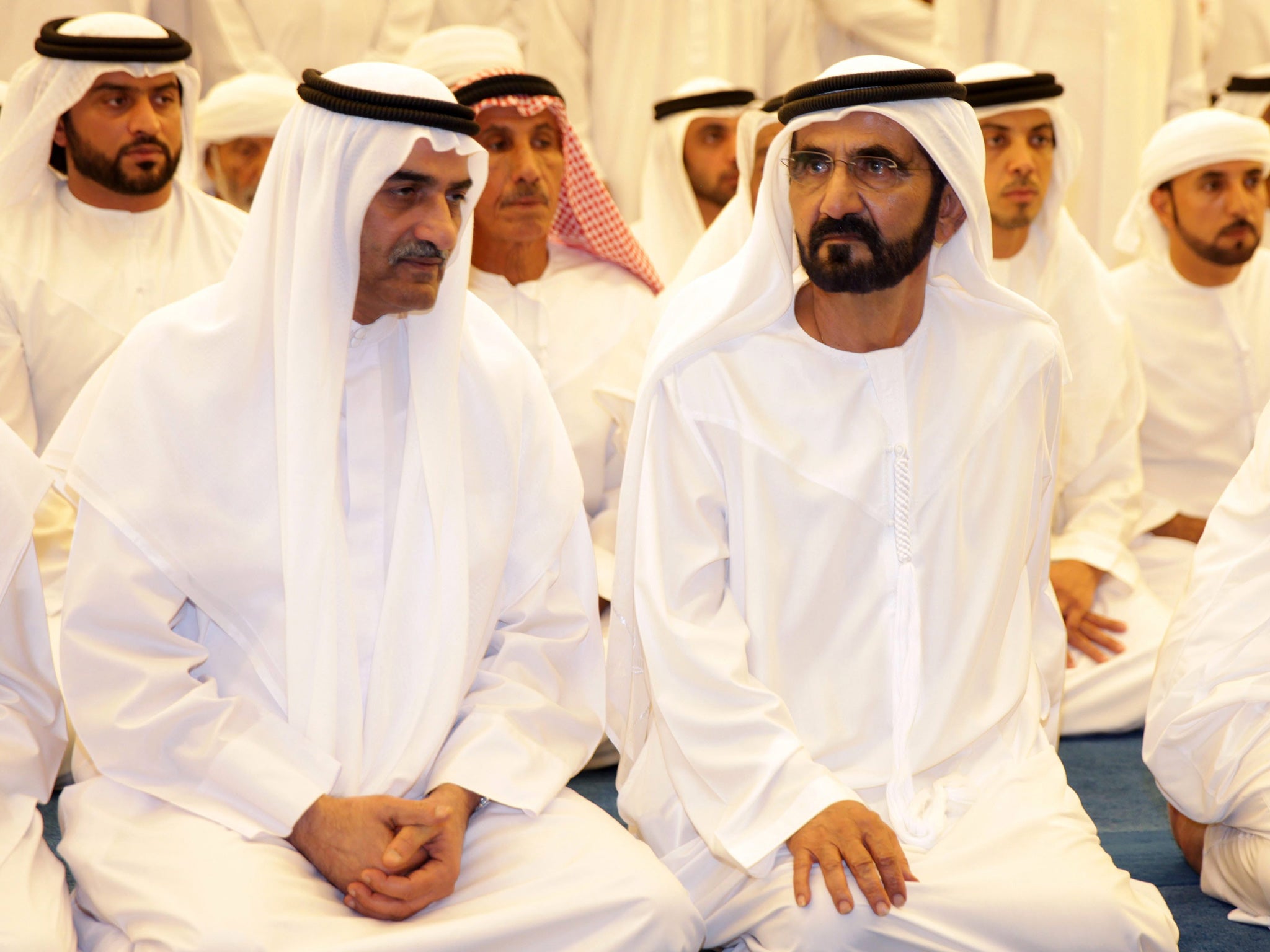Sheikh Rashid bin Mohammed: Brother, businessman or bodybuilder - who was he really?
As Dubai mourns its former royal heir, speculation surrounds the nature of his death – and life

The poem was entitled “My Brother: The Word”, and it spoke of a raw grief over the sudden death of a sibling. In one verse, the writer said: “Friends are greatly esteemed but can turn on you and sell you – but a brother cannot, for it is a relationship that was never bought.”
The death of Sheikh Rashid bin Mohammed al-Maktoum – the one-time heir to the crown of Dubai – seemed to have affected few more greatly than his younger brother, Sheikh Hamdan, who this week made public his desolation at the loss of his sibling by posting a poem on Twitter.
What was not publicly discussed in the glittering emirate was the troubled history of 33-year-old Rashid, a handsome, accomplished sportsman who died at his palace last weekend of a sudden and unexplained heart attack.
It was a tragic end to a life that was supposedly destined not only for great riches, but royal power.
The young, Sandhurst-educated prince was, until 2008, heir apparent to his father, Sheikh Mohammed, the emirate’s “Ruler” and the man responsible for turning a one-time Gulf backwater into a business and tourist hub.

But even by the enigmatic standards of Dubai’s ruling family, his fall from grace was as complete as it was swift.
Once the public head of a series of investment houses and businesses, Rashid more or less disappeared from view eight years ago. His replacement as successor to the throne was Hamdan, among whose other qualities is that of being seen as a leading poet in Dubai. Known as “Fazza”, a reference to a legendary Arab knight, Hamdan’s poems have been turned into popular songs and he is often treated more like a pop star than royalty.
The official reason given for demoting Rashid – who had an estimated personal fortune of $1.9bn (£1.2bn) – was that Hamdan would be more able to deal with the pressures of becoming Dubai’s unquestioned monarch.
Within diplomatic circles, however, alternative explanations were being passed around, A memo sent by an American envoy to the US intelligence agencies, including the CIA, noted the most sensational theory circulating on the elite Dubai dinner party circuit. The document, from February 2008 and obtained by WikiLeaks, said: “[Sheikh Mohammed’s] eldest son, Rashid, does not play a public role in Dubai affairs ... It is alleged that Rashid killed an assistant in the Ruler’s office, thereby forfeiting his opportunity to be heir.”
The name of the supposed victim has never been revealed, nor indeed has there ever been any confirmation of such an incident.

But the subsequent disappearance of Rashid from public view to concentrate on charity work and his horseracing stable, Zabeel Racing International, came on the back of additional claims that the young prince had longstanding issues with drug abuse, including the use of steroids, which can induce uncontrollable “roid-rage” when taken in excess.
Photographs from this time show Rashid, once declared one of the “20 hottest young royals” by Forbes magazine, displaying the sculpted torso of a professional bodybuilder.
In 2011, Ejil Mohammed Ali, a former aide to the Maktoum family, claimed in an employment tribunal in Britain that Rashid had recently undergone drug rehabilitation. The Maktoums won the case and through their lawyers denied all the allegations.
In Dubai, where it seems reforms to civil society and freedom of expression do not stretch to criticism of the United Arab Emirates’ ruling families, there has been no mention of Rashid’s apparent troubles.
The National, an Abu Dhabi-based newspaper owned by the government, wrote: “Sheikh Rashid is remembered for his philanthropic work, his role in advancing sports in the UAE and his skills as an accomplished equestrian and businessman.”
But those who knew the dashing prince have begun to tell a more nuanced story – that of a man who had his demons and had only recently turned to charitable work, one of which included Dubai Cares, an organisation dedicated to providing primary education around the globe.
One friend said: “He had his faults, but was a fun, nice person. His problem was he had too much money and was too spoilt. Everyone on earth has their problems and he was addicted to substances. That was probably his downfall.”
Like his father, Rashid’s abiding passion was horses. His Zabeel stables has trained 428 winners, and he won the UAE Owner’s Championship consecutively five times.
The prince was also an accomplished horseman in his own right, winning two gold medals at the 2006 Doha Asian Olympics for endurance riding events.
But Rashid also lived in fear of his father’s disapproval.
In 2008, a South African bookmaker who had bribed the cricketer Hansie Cronje several years earlier, sued Rashid over what he said was unpaid commission for arranging the purchase of a string of horses worth £1.4m.
Marlon Aronstam said in court papers that he had been instructed not to send invoices for his commission to Dubai because the prince did not want them disclosed to his accountants “and more particularly to his father”. The case was settled out of court.
Mr Aronstam was among those paying their respects to Rashid this week. He wrote on his Facebook account: “Sheikh Rashid, I will miss you. You had faults but don’t we all.”
Another tribute was paid by the former Argentinian footballer Diego Maradona, who himself battled drug addiction. Mardona, who coached a Dubai football team in 2011, said: “He was a great horseman and a first-class athlete who impressed me a great deal.”
As a three-day period of official mourning ended in Dubai, officials have maintained a stony silence amid questions of whether the prince’s past could have contributed to his death. Instead, it is Sheikh Hamdan who has become the spokesman for his family’s grief – on Twitter.
Join our commenting forum
Join thought-provoking conversations, follow other Independent readers and see their replies
Comments
Bookmark popover
Removed from bookmarks